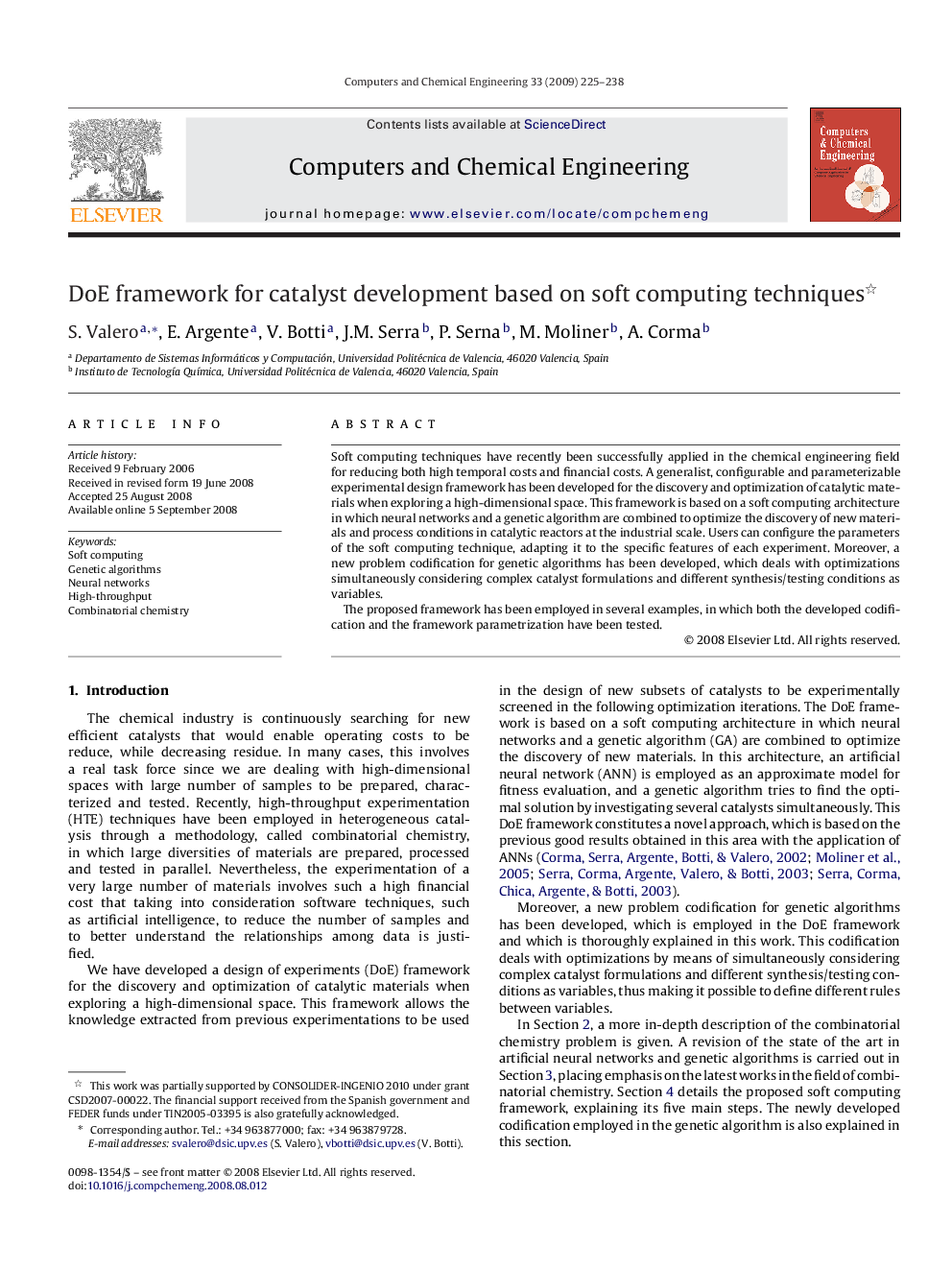| Article ID | Journal | Published Year | Pages | File Type |
|---|---|---|---|---|
| 173413 | Computers & Chemical Engineering | 2009 | 14 Pages |
Soft computing techniques have recently been successfully applied in the chemical engineering field for reducing both high temporal costs and financial costs. A generalist, configurable and parameterizable experimental design framework has been developed for the discovery and optimization of catalytic materials when exploring a high-dimensional space. This framework is based on a soft computing architecture in which neural networks and a genetic algorithm are combined to optimize the discovery of new materials and process conditions in catalytic reactors at the industrial scale. Users can configure the parameters of the soft computing technique, adapting it to the specific features of each experiment. Moreover, a new problem codification for genetic algorithms has been developed, which deals with optimizations simultaneously considering complex catalyst formulations and different synthesis/testing conditions as variables.The proposed framework has been employed in several examples, in which both the developed codification and the framework parametrization have been tested.
